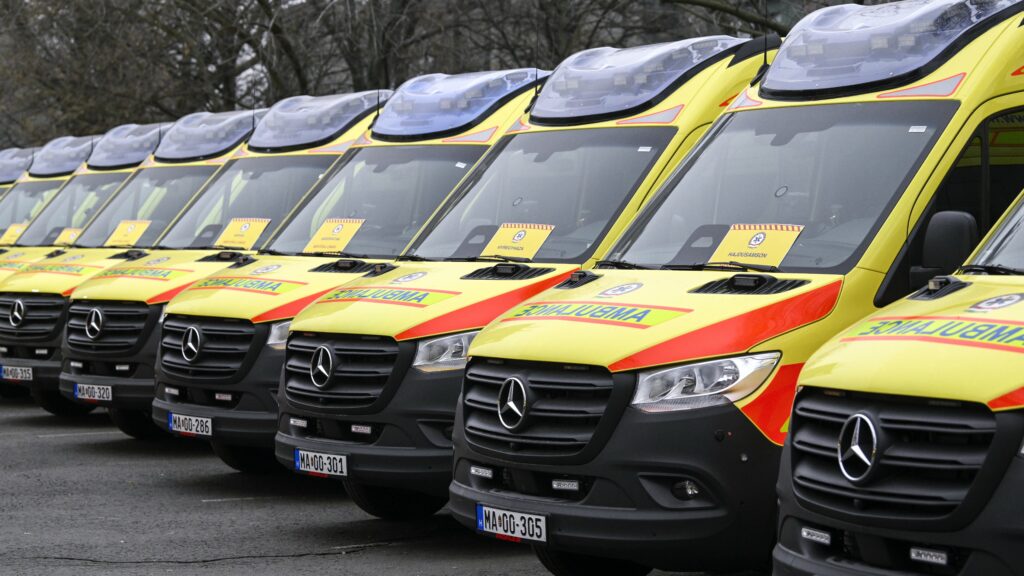Two years after the 2022 census, Europe’s largest economy and most populous country has released results that offer stark lessons. Let’s look at the most important data, truly gruesome from a national conservative point of view.
A Changing Population
It reveals that Germany’s population of 82.7 million is stagnating, indicating that depopulation is not exclusively a poor country issue, with the German fertility rate mirroring that of Hungary.
Statistically, of the 82.7 million population, 71.8 million could be considered Germans, including third-generation Turks who identify as German. There are also 11 million foreigners, a staggering increase from the 2011 census figure of 6.1 million. This includes migrants, refugees, and migrant workers who have obtained citizenship.
Additionally, 63 million people in Germany do not have an immigrant background, making up 76 per cent of the population.
In cities like Offenbach am Main, this figure drops to 46 per cent,
while in larger cities such as Nuremberg or Dortmund, it hovers around 60 per cent. Even in Frankfurt am Main, with a population of 743,000, the non-immigrant population constitutes 55 per cent of all residents.
For readers from countries founded on immigration, like the United States, this may not seem perplexing. But from a European, and in particular, an East-Central European perspective these figures are shocking. It is crucial to note that Germany’s population has been diverse for quite some time, not only as a result of recent immigration. These demographic shifts reflect decades of migration policies, resulting in a population enriched by various cultures, notably from African and the Middle Eastern source countries. It is also noteworthy that 15.6 million of the 18 million immigrants are first-generation arrivals.
Immigrants in Germany are generally younger than the native population. According to the Federal Statistical Office’ 2022 census data, the average age of non-German residents was thirty-seven years, contrasting with forty-five years for Germans. The implication of this is quite obvious: with time, the proportion of the non-German population is going to grow exponentially.
Housing Crisis
Amidst a severe housing crisis, the data reveals a surprising number of vacant flats and houses. Statisticians report 1.9 million unoccupied homes, with approximately 700,000 potentially available for occupancy within three months, equating a 4.3 per cent vacancy rate. Although slightly higher than in 2011, Germany’s current housing dilemma primarily revolves around escalating costs, emerging as a critical social issue. Despite possessing 43.1 million homes, meeting the housing needs of 83 million people remains contingent on optimal geographic distribution.
Religion
In Germany there is a growing prevalence of woke and hedonistic nihilism. Both major denominations, Catholic and Lutheran, have witnessed declining membership. Interestingly, the German Lutheran Church, pioneering adaptation to contemporary trends, has experienced the most significant decline, possibly due to embracing progressive changes, such as the ordination of lesbian pastors. Currently, only 48 per cent of Germans officially identify with traditional denominations.
This decline is particularly pronounced among young people, with only 31.5 per cent of those under ten being Catholic or Lutheran,
compared to 70.3 among those over eighty. It needs to be added, however, that in Germany belonging to a recognized church also means automatic payment of church taxes, which more and more Germans opt to avoid.
Gender
Germany is known for its tendency to embrace extremes, be it in military hardware or progressive ideologies that even put Washington Democrats to shame. For instance, a Gender Government Commissioner is in place, and procedures like gender-affirmation treatment and, most recently, legal transitioning, do not require prior medical evaluation. Unsurprisingly, the most recent census questionnaire accommodated gender categories beyond male and female, too.
However, as of May 2022, there were 42 million women and 40 million men in Germany, with 1,259 people opting not to specify what their gender, that is, 0.001522 per cent of the adult population, and 969 identifying as non-binary, corresponding to 0.001171 per cent of German people of age.
These findings challenge the rationale behind German political discourse being so focused on gender issues rather than addressing more significant public concerns. Notably, the results discredit the claims of surveys by LGBT NGOs on gender demographics.
For instance, the German Society for Trans and Intergender Studies (dgti) estimates that 1.7 per cent of the population identifies as intersex, numbering 1.406 million.
Lessons Learned
Germany is clearly grappling with serious demographic challenges. The fact that Berlin governments have been either ignoring the birth gap or have wanted to resolve it by allowing ever more migrants in has resulted in the ethnic and cultural composition of the population, especially in large cities, having changed to previously unimaginable extents. Despite extensive immigration the German population is not growing, meaning that the native population is decreasing.
Depopulation cannot be resolved with increasing prosperity or migration alone.
Effective solutions necessitate responsible social and family policies with widespread family support, akin to initiatives in Hungary.
The changing demographic in German cities, where traditional characteristics are diminishing, also signifies deep socio-political shifts. Addressing these transformations is crucial, as they pose implications for democratic integrity and the rule of law, transcending partisan narratives.
Another lesson learned is that gender is something that interests Germans much less than their political leaders or LGBTQ activists want the public to believe. At the same time, there is a continuing decline of religiosity, despite the Christian churches bending over backwards to adapt to the ‘changing times.’ Germans are clearly not appreciative of that, as they not only are not flocking back to the Catholic and Lutheran churches but are leaving them in ever larger numbers.
Is it perhaps the eleventh hour for Germany to change course, by electing leaders that share the core values of the Hungarian conservative government, God, country, family, and its three consistent principles of no gender, no migration and no war. These are the recipes for a prosperous and peaceful nation.







